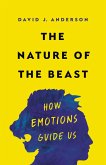Dominance and Aggression in Humans and Other Animals: The Great Game of Life examines human nature and the influence of evolution, genetics, chemistry, nurture, and the sociopolitical environment as a way of understanding how and why humans behave in aggressive and dominant ways. The book walks us through aggression in other social species, compares and contrasts human behavior to other animals, and then explores specific human behaviors like bullying, abuse, territoriality murder, and war. The book examines both individual and group aggression in different environments including work, school, and the home. It explores common stressors triggering aggressive behaviors, and how individual personalities can be vulnerable to, or resistant to, these stressors. The book closes with an exploration of the cumulative impact of human aggression and dominance on the natural world.
- Reviews the influence of evolution, genetics, biochemistry, and nurture on aggression
- Explores aggression in multiple species, including insects, fish, reptiles, birds, and mammals
- Compares human and animal aggressive and dominant behavior
- Examines bullying, abuse, territoriality, murder, and war
- Includes nonaggressive behavior in displays of respect and tolerance
- Highlights aggression triggers from drugs to stress
- Discusses individual and group behavior, including organizations and nations
- Probes dominance and aggression in religion and politics
- Translates the impact of human behavior over time on the natural world
Dieser Download kann aus rechtlichen Gründen nur mit Rechnungsadresse in A, B, BG, CY, CZ, D, DK, EW, E, FIN, F, GR, HR, H, IRL, I, LT, L, LR, M, NL, PL, P, R, S, SLO, SK ausgeliefert werden.









